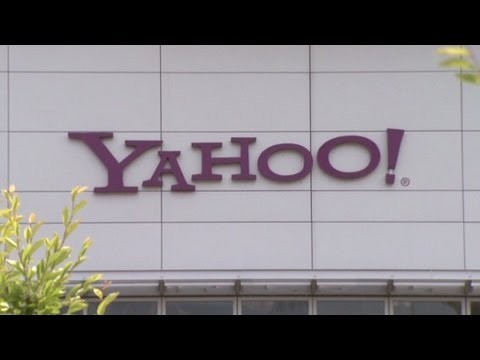Yahoo poised to make bank with Alibaba IPO
Post on: 16 Март, 2015 No Comment

The malware issue was the latest problem to hit the struggling Yahoo. (Photo: Chris Hondros, Getty Images file)
The world’s financial centers are fighting each other for the right to host Alibaba Group’s initial public offering (IPO).
There’s no date set yet, although it is widely expected to happen in the first quarter of 2014. There are no documents that investors can pore over. There isn’t even final word that it’s going to happen.
But China’s biggest e-commerce site—a privately-held Chinese-language combo of Amazon, eBay, PayPal and more all rolled into one—is interested in selling shares on an exchange outside mainland China, and everybody wants the listing.
Just by doing nothing since 1995, Yahoo has managed to hang onto 24% of the Chinese company. By the terms of its current agreement, it will be required to sell much of its stake when and if Alibaba goes public.
Tough luck for Yahoo CEO Marissa Mayer. She has bought a couple of dozen small sites in the last year, with names like GhostBird and Bignoggins, as she tries to revive her flagging one-time giant.
She can buy a whole lot more when she cashes in those Alibaba shares.
Yahoo’s 24% share might be worth about $36 billion. That’s the estimate from RBC Capital Markets, which this week raised its price target for Yahoo to $44, from $38, citing the value of Yahoo’s stake in Alibaba.
Analyst Mark Mahaney also raised his estimate of the value of Yahoo’s Alibaba stake to $36 billion, from $26.4 billion.
Mahaney now estimates the value of Alibaba at $150 billion, up from $110 billion.
This week’s reason for enthusiasm about Alibaba Group is the news that the company would invest about $360 million in the Haier Group.
Haier is a brand known in the US for its appliances. But in China, Haier also runs a logistics company called Goodaymart that delivers products, both its own and those of other companies, deep into China’s interior.
Alibaba founder Jack Ma said the joint venture was designed to create a platform that will equip China’s manufacturing industry with enhanced nationwide and global access.
That explanation is a bit vague. Apparently, what Alibaba is getting for its $360 million is access to Goodaymart’s warehouse space and logistics network to enable more efficient delivery of merchandise throughout China.
A good distribution network is not incidental to Alibaba Group, which claims it currently generates about 70% of all package deliveries in China. Ma has termed China’s current logistics network terrible.
Alibaba is doing okay in spite of that problem.
In 2012, it claimed $170 billion in sales, more than eBay and Amazon combined. A company executive said earlier this year that Alibaba expects to triple its transaction volume to about $490 billion by 2016, overtaking Wal-Mart as the world’s biggest retailer.
By some measures, Bloomberg says, the company is already twice as profitable as Facebook.
The company’s two best-known sites are Tmall.com, a Web storefront that features the products of about 70,000 global brands, and Taobao, a massive swap shop for Chinese consumers. It has its own online payment service, currently used primarily for purchases on its networks. It also operates a daily deals site on the Groupon model, called Juhuasuan.
On the B-to-B side, the company operates Alibaba.com, a business-to-business portal that connects Chinese manufacturers with foreign buyers, and a separate wholesale merchandise site for small businesses. It is now moving into cloud services.
The upbeat numbers keep pouring in. Alibaba was last in the news on Nov. 11, when it brought in a record $5.7 billion in one day. It was the Chinese version of Black Friday, called Singles Day.
But as investor anticipation for the IPO grows, it is by no means certain that it will land on Wall Street.
The Hong Kong Stock Exchange reportedly is considering bending its own rules on company management structure in order to permit the kind of IPO that the founder wants.
The South China Morning Post reported this week that British Prime Minister David Cameron, in a private meeting, personally appealed to Ma to launch his IPO in London rather than New York or Hong Kong. In its public statement, the company stressed Cameron’s interest in Alibaba as a platform for sales of British goods to Chinese consumers.
News of the Alibaba-Haier partnership sent shares in Haier Electronics Group, a division of Haier Group listed in Hong Kong, soaring nearly 13%, to about $2.76. That is its highest level since July 1999. Haier is expected to use some of the funds to expand its capacity and improve the online integration of its products.
Yahoo stock was up just .21%, to $38.95.
This story originally appeared on Minyanville .














